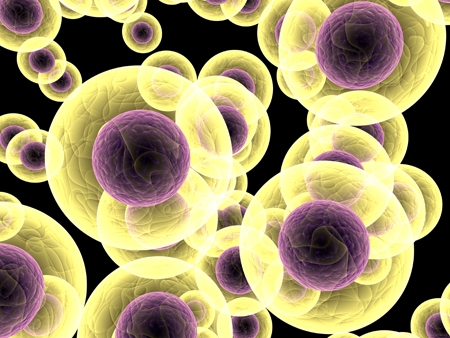White Blood Cells Can Convey Resilience to Stress
Mice subjected to chronic defeat stress (being placed in the home cage of a larger, more aggressive mouse) behave in ways that resemble human anxiety and depression. In new research by Miles Herkenham and colleagues at the National Institute of Mental Health, in which they explored the adaptive immune system’s affect on mood, mice exposed to this type of stress showed increases in inflammatory cytokines in the blood (including TNFalpha, IL-1beta, IL-2, IL-3, IL-6, IL-17, and IFNgamma) compared to a control group. Interestingly, when white blood cells (lymphocytes) from stressed animals were transferred to a new set of animals, the recipient mice seemed to benefit from greater resilience to stress in a variety of ways.
Mice that received white blood cells from defeat-stressed animals had lower levels of TNFalpha, IL-1beta, IL-2, IL-3, and IL-17 than a control group that received white blood cells from unstressed mice. The recipient mice also exhibited reduced anxious and depressive behaviors in a litany of behavioral tests compared to both the group that received white blood cells from unstressed mice and a group that received a saline injection instead. Lastly, the recipients of the white blood cells from stressed animals showed more new neurons in the dentate gyrus of the hippocampus. (Hippocampal neurogenesis is decreased by stressors and increased by antidepressants.)
Herkenham and colleagues concluded that psychopathology is not just a downward spiral—the immune system plays an active role in adapting to stress, with lymphocytes being programmed by stress to provide antidepressant functions.
Editor’s Note: These data add a new twist to the studies of Scott Russo, who found that IL-6 secreted by white cells of animals subject to defeat stress was the cause of the depressive-like behaviors they exhibited. If IL-6 was blocked, the behaviors did not occur. Now it would appear from Herkenham’s work that something about the timing, the type of cytokines, or the transfer of the white cells conveyed protective antidepressant-like effects in this case.
Depression May Not Be All in Your Head
 Repeated social defeat stress (when an intruder mouse is repeatedly threatened by a larger mouse defending its home territory) is often used as a model to study human depression. Animals repeatedly exposed to social defeat stress start to exhibit depression-like behaviors such as social avoidance and loss of interest in sucrose. Georgia Hodes, a researcher at Mount Sinai School of Medicine, reported at a recent scientific meeting that repeated defeat stress–induced behavior was blocked when IL-6, an inflammatory cytokine released by white blood cells in the blood, was inhibited. The central nervous system did not appear to be involved.
Repeated social defeat stress (when an intruder mouse is repeatedly threatened by a larger mouse defending its home territory) is often used as a model to study human depression. Animals repeatedly exposed to social defeat stress start to exhibit depression-like behaviors such as social avoidance and loss of interest in sucrose. Georgia Hodes, a researcher at Mount Sinai School of Medicine, reported at a recent scientific meeting that repeated defeat stress–induced behavior was blocked when IL-6, an inflammatory cytokine released by white blood cells in the blood, was inhibited. The central nervous system did not appear to be involved.
Interestingly, mice with more white blood cells and more IL-6 release at baseline (prior to the social defeat stress) were more likely to show the defeat-stress depressive behaviors.
Editor’s Note: The higher number and greater reactivity of white blood cells seen in these mice could be a clinical marker of vulnerability to defeat stress, and such findings are worthy of study in human depression. White blood cells are critical to fighting infection and sometimes their overactivity can contribute to inflammation. In meta-analyses, a subgroup of depressed patients consistently show elevated inflammatory markers (including IL-1, IL-6, TNF alpha, and CRP), and it remains to be seen whether these markers of inflammation are generated in the central nervous system or come from white blood cells in the blood, and whether their targeted suppression could be a new route to antidepressant effects (as in the study of defeat stress in mice).


